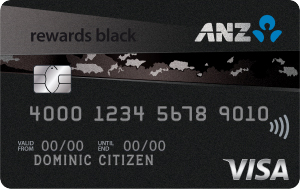
Hi, I’m a personal finance expert who loves to help you out! I’ll answer your question within a business day. Pinky swear.

Credit history is one of those things rarely thought about unless you need it, but forward thinking now is more important than ever before. Changes to the Privacy Act at the end of 2012 mean that credit-reporting agencies will soon be allowed to collect new kinds of credit-related personal information.
What’s more, the information given to credit reporting agencies can relate to payments made or missed from December 2012 – a time when credit use and defaults are typically a greater risk due to holiday spending.
While this system known as “comprehensive credit reporting” – is designed to lead to a fairer application process, it is a huge change from the previous information available on your credit file.
In a media release at the end of last year the Privacy Commissioner, Timothy Pilgrim, said “Australians need to be vigilant about their repayment history now.”
“It is now even more important that people keep an eye on their credit card and loan statements when they come in and avoid missing or making a late payment,” he said.
“Changes to the Privacy Act mean that late or missed credit card or loan payments may be included on your credit reporting file and could affect your ability to obtain credit in the future.”
With just over a year until the system comes into place, that means now is the ideal time to take a look at your credit history and habits so that you have the best chance of application approval.
Key things to think about with your credit history
Until the introduction of comprehensive credit reporting, your file only includes identity details, credit enquiries and negative data such as defaults, court judgments and bankruptcies.
The addition of this new data means that potential credit issuers will be more interested in checking your credit history to see how you use and manage credit.
In particular, the details that could significantly affect new credit applications will include:
- How and when you pay off cards and other credit accounts,
- Any changes to your credit limit; and
- The status of loans where you are listed as a guarantor.
These three factors have the potential to make or break credit card and other loan applications from March onwards, so it is important to consider them now and improve where you can.
While you can get a copy of your current credit report for free from Veda Advantage or Dun & Bradstreet, to review the key factors above you will need to look at your statements and payment history.
That is usually easy enough online, but if you have any particular concerns then it is a good idea to call your issuer and discuss them.
If you are currently struggling with debt or wondering how you will make your next payment, asking for help will reduce both the financial pressures and the chance of serious black marks on your credit history.
Repairing a sad credit history
Australia is one of only two countries in the developed world that does not currently have comprehensive credit reporting in place, so it is interesting to look at the potential impact it will have.
Credit providers and agencies have welcomed the change, with Dun & Bradstreet among the many saying it will benefit people who pay their credit obligations on time.
But it is another story for people with bad credit history. In countries like America, Canada and the United Kingdom, comprehensive credit reporting has led to a boom in credit repair companies.
These organisations are designed to help you improve your credit history and rating so that you have a better chance of application approval, but it can come at a high cost.
A recent survey conducted by the Energy and Water Ombudsman NSW (EWON) found that ‘credit repair’ agents charged a minimum average of $1000 to seek to remove credit default listings on a customer’s behalf. The data also showed that 70% of complainants using these agents had multiple credit listings.
While paying these fees may seem like a quick and easy way to get better credit history, the Privacy Commissioner said there are affordable alternatives.
“If people consider there is an error on their credit reporting file they should contact the company the default is with in the first instance,” he explained.
“If they are not satisfied with the company’s response, a person can contact the Office of the Australian Information Commissioner or a relevant Ombudsman service, such as the Financial Ombudsman Service or the Telecommunications Industry Ombudsman whose services are free. There are also consumer credit legal centres that can help.”
There is no doubt the changes to your credit history will have an impact on new applications in the future, but what you do now could make all the difference.0
Taking the time to review your current credit cards and other loans – including ones where you act as a guarantor – should help you get the most out of this new system when it is introduced in March 2014.
Photo source: Shutterstock

Pauline Hatch
Pauline is a personal finance expert at CreditCard.com.au, with 9 years in money, budgeting and property reporting under her belt. Pauline is passionate about seeing Aussies win by making their money – and their credit cards – work smarter, harder and bigger.
You might be interested in

American Express
Amex Membership Rewards: Changes Coming for Australian Cardholders

Tips & Guides
Can You Buy A Car With A Credit Card in Australia?
Recently Asked Questions
Something you need to know about this card? Ask our credit card expert a question.
Ask a question
Hi, I’m a personal finance expert who loves to help you out! I’ll answer your question within a business day. Pinky swear.














